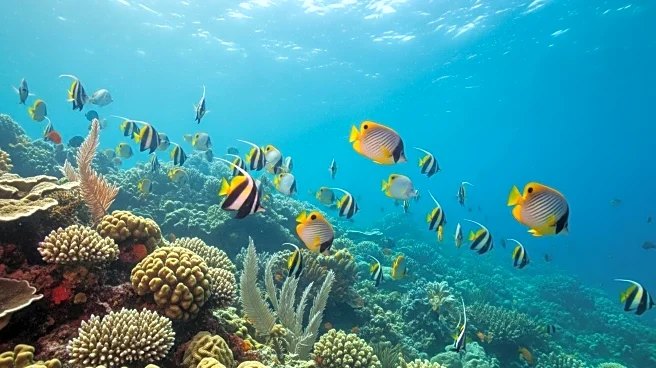What is the story about?
What's Happening?
The World Trade Organization (WTO) has enacted a landmark agreement aimed at curbing billions of dollars in subsidies that contribute to overfishing. This agreement, which took over 20 years to negotiate, prohibits governments from providing subsidies for overfished stocks and fishing in international waters beyond their jurisdictions. The deal was formally ratified by Brazil, Kenya, Tonga, and Vietnam, achieving the necessary support from two-thirds of WTO members. The agreement is seen as a significant step towards allowing global fish stocks to recover, benefiting local fishers who rely on healthy oceans. However, negotiations on further fishing rules have stalled, with developing economies seeking exemptions that other states find unworkable.
Why It's Important?
The implementation of this agreement is crucial for the sustainability of global fish stocks, which are vital for food security and the livelihoods of millions worldwide. By reducing subsidies that encourage overfishing, the WTO aims to promote healthier ocean ecosystems. This move could lead to long-term benefits for the fishing industry, particularly in poorer states that will have access to a fund to ease their transition into the new regulations. The agreement also marks a significant achievement for the WTO, which has faced criticism and challenges in recent years, including a surge in U.S. tariffs.
What's Next?
The current agreement will expire in four years unless more comprehensive rules are agreed upon. The WTO Director-General has expressed optimism that further talks could prevent the expiration of the deal. Stakeholders, including governments and environmental groups, will likely continue to push for broader regulations to address remaining issues in global fishing practices. The success of this agreement could influence future international trade negotiations and environmental policies.















